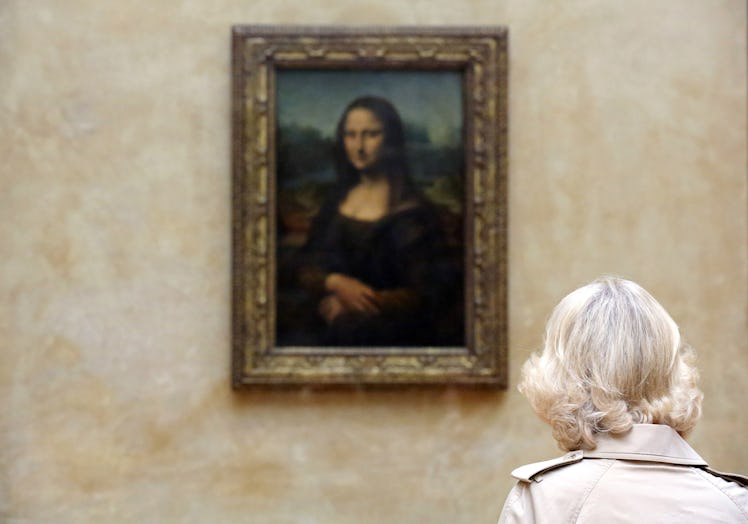
There's A Legit Reason Why Google Arts & Culture Isn't Available In Texas
It's likely that a recent scroll through pretty much any of your social media platforms has brought the Google Arts & Culture app to your attention. Your friends and followers are probably posting their side-by-side selfies of themselves with their respective artwork doppelgängers generated in the app. As seemingly everyone else is enjoying the ability to see their own likeness in a piece of history, you might be wondering why you can't get the app to work where you are. The limited availability is likely due to certain laws in your location. So, why is the Google Arts & Culture app not available in Texas?
If you are located in Texas and have tried (unsuccessfully) using the new selfie feature in the Google Arts & Culture app, you've been met with disappointment time after time. Unfortunately, this is no mistake or problem with your phone. The reasoning behind your inability to discover your historical art twin actually lies in the state's biometric privacy laws, according to TIME — and it might even be protecting you more than you think.
Texas passed a biometric privacy law in 2009, according to the Texas Constitution and Statues website, and its purpose is to protect individuals from a company's misuse of gathered biometric data.
The strict legislation, which is similar to the Illinois biometric privacy law that was passed in 2008, is what prevents Texans from discovering which art museum houses their historical twin. In the legislation, biometric identifiers are defined as a retina or iris scan, fingerprints, voiceprints, or records of face and hand geometry.
As the law relates to those biometric identifiers, it states that they may not be captured for commercial purposes without the consent of the individual. Since the "Is your portrait in a museum?" selfie feature of the Google Arts & Culture app requires the use of some of those biometric identifiers to produce a result, the Lone Star state law is somewhat of a roadblock to your historical art curiosity. The Google Arts & Culture app does alert the user to the fact the company will collect and analyze their photos when you use the app, and the user must agree to the process in order to use the selfie feature, according to CNN Tech.
Other facets of the Texas biometric privacy law that protect you include preventing the sale or disclosure of your biometric identifiers and mandating the destruction of the information no later than one year from when it was captured (in most cases). Of course, interpreting legalese is never the most fun way to spend your time (and it's even less fun when it's preventing you from discovering your historical doppelgänger), but it appears to be that the law is put in place to protect citizens' biometric identifiers from "getting into the wrong hands", if you will.
Obviously, you would think that a just-for-fun app like Google Arts & Culture would be able to subscribe to all of the limitations set forth in the law and that you could agree to the momentary use of your biometric identifiers. Alvaro Bedoya, director of the Georgetown Law Center on Privacy & Technology, believes that the app does fulfill the requirements of the Texas biometric privacy laws through its seeking users' consent, as he relayed to CNN Tech. He further posited that Google may be purposefully withholding the app in places like Texas in order send a message that they want these strict laws to go away. Google has not commented on that being the reason, though, and the company has alerted users that they are working on expanding the availability of the app.
While Texans might be bummed that they can't currently get their hands on their historical art twin, there is no doubt that this selfie feature of the Google Arts & Culture app has produced a fascinating debate over the correct implementation and severity of biometric privacy laws. Here's to hoping the outcome results in everyone having the ability to (safely) snap their way into history.